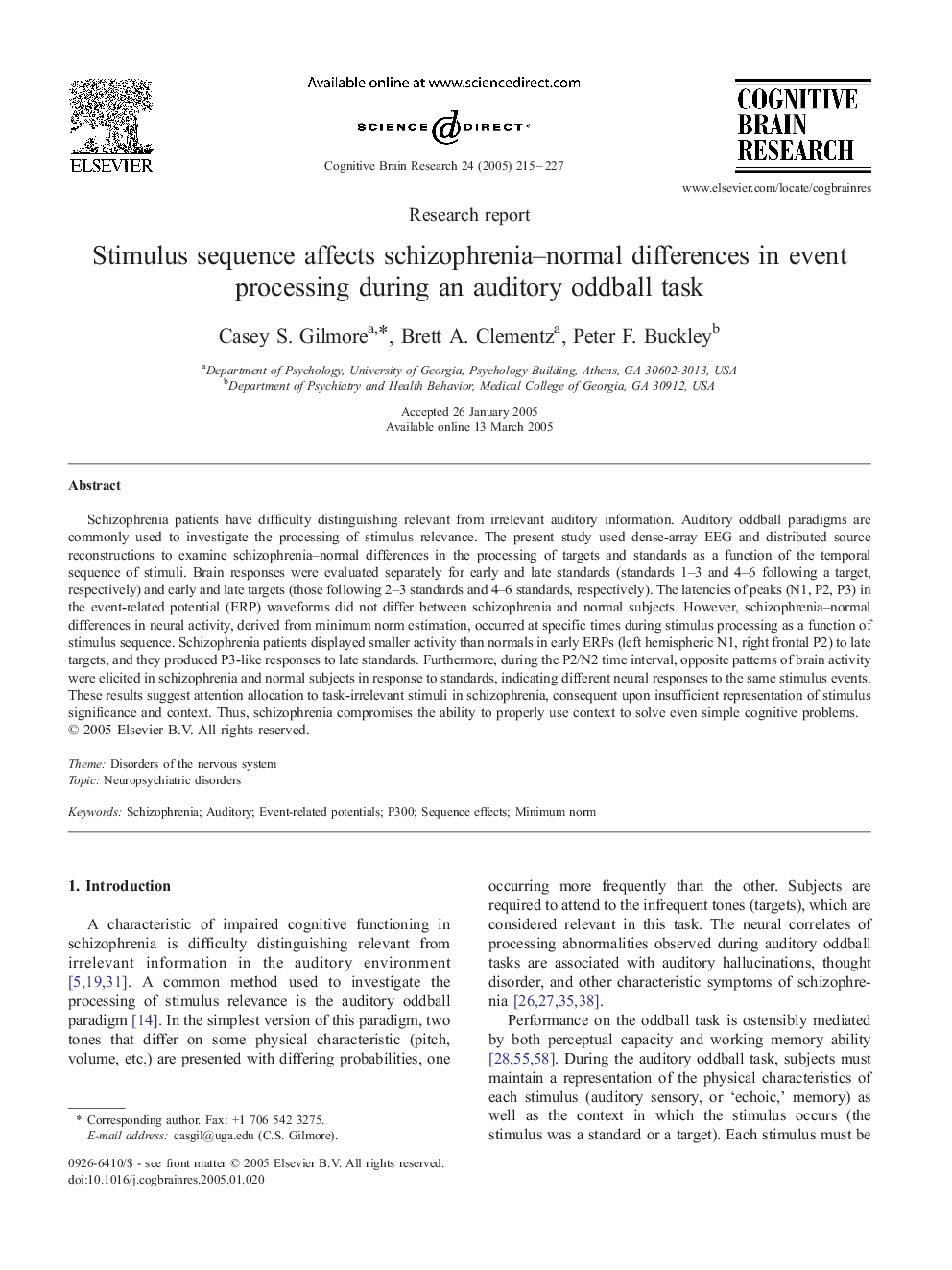| Article ID | Journal | Published Year | Pages | File Type |
|---|---|---|---|---|
| 9408119 | Cognitive Brain Research | 2005 | 13 Pages |
Abstract
Schizophrenia patients have difficulty distinguishing relevant from irrelevant auditory information. Auditory oddball paradigms are commonly used to investigate the processing of stimulus relevance. The present study used dense-array EEG and distributed source reconstructions to examine schizophrenia-normal differences in the processing of targets and standards as a function of the temporal sequence of stimuli. Brain responses were evaluated separately for early and late standards (standards 1-3 and 4-6 following a target, respectively) and early and late targets (those following 2-3 standards and 4-6 standards, respectively). The latencies of peaks (N1, P2, P3) in the event-related potential (ERP) waveforms did not differ between schizophrenia and normal subjects. However, schizophrenia-normal differences in neural activity, derived from minimum norm estimation, occurred at specific times during stimulus processing as a function of stimulus sequence. Schizophrenia patients displayed smaller activity than normals in early ERPs (left hemispheric N1, right frontal P2) to late targets, and they produced P3-like responses to late standards. Furthermore, during the P2/N2 time interval, opposite patterns of brain activity were elicited in schizophrenia and normal subjects in response to standards, indicating different neural responses to the same stimulus events. These results suggest attention allocation to task-irrelevant stimuli in schizophrenia, consequent upon insufficient representation of stimulus significance and context. Thus, schizophrenia compromises the ability to properly use context to solve even simple cognitive problems.
Keywords
Related Topics
Life Sciences
Neuroscience
Behavioral Neuroscience
Authors
Casey S. Gilmore, Brett A. Clementz, Peter F. Buckley,
